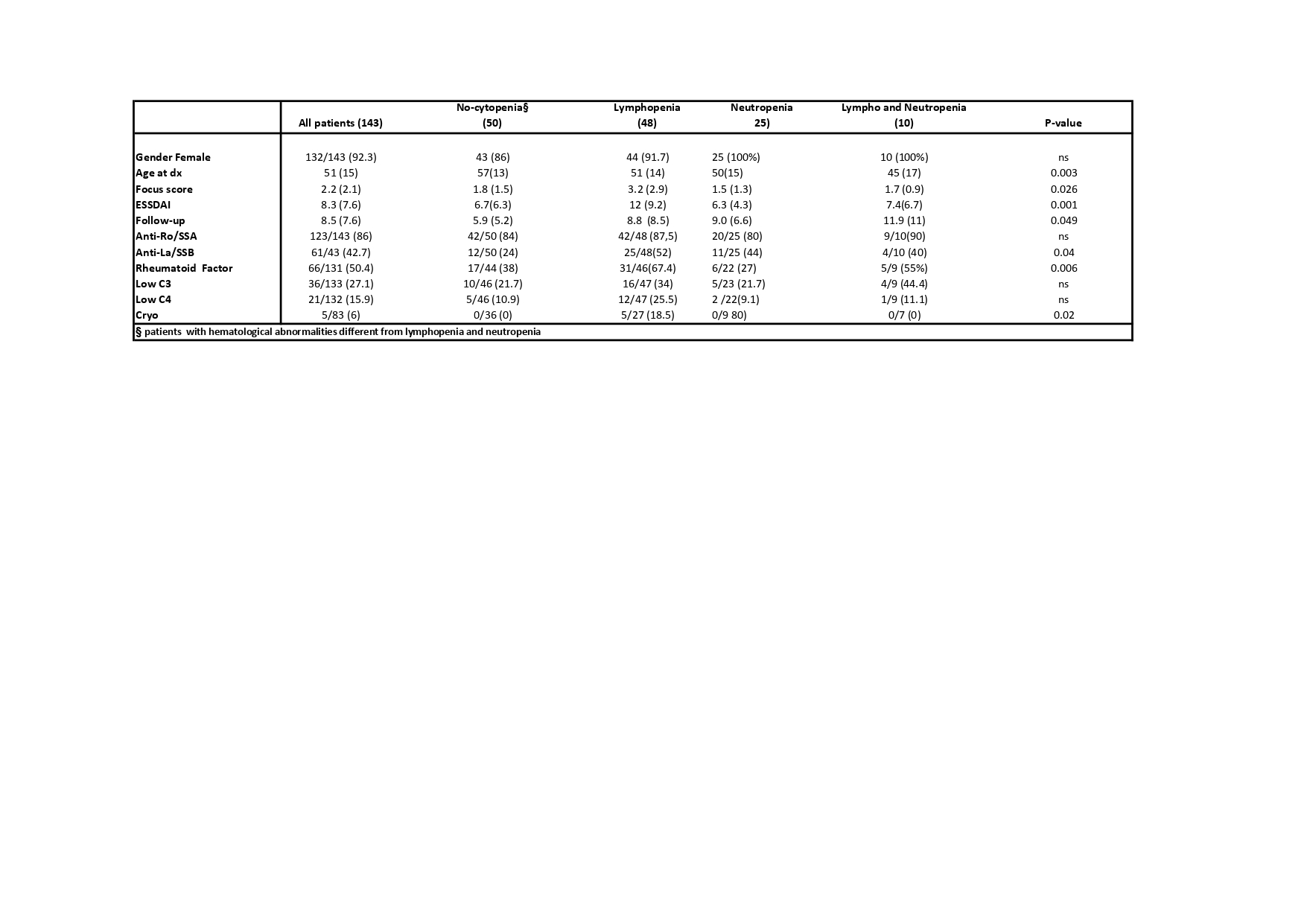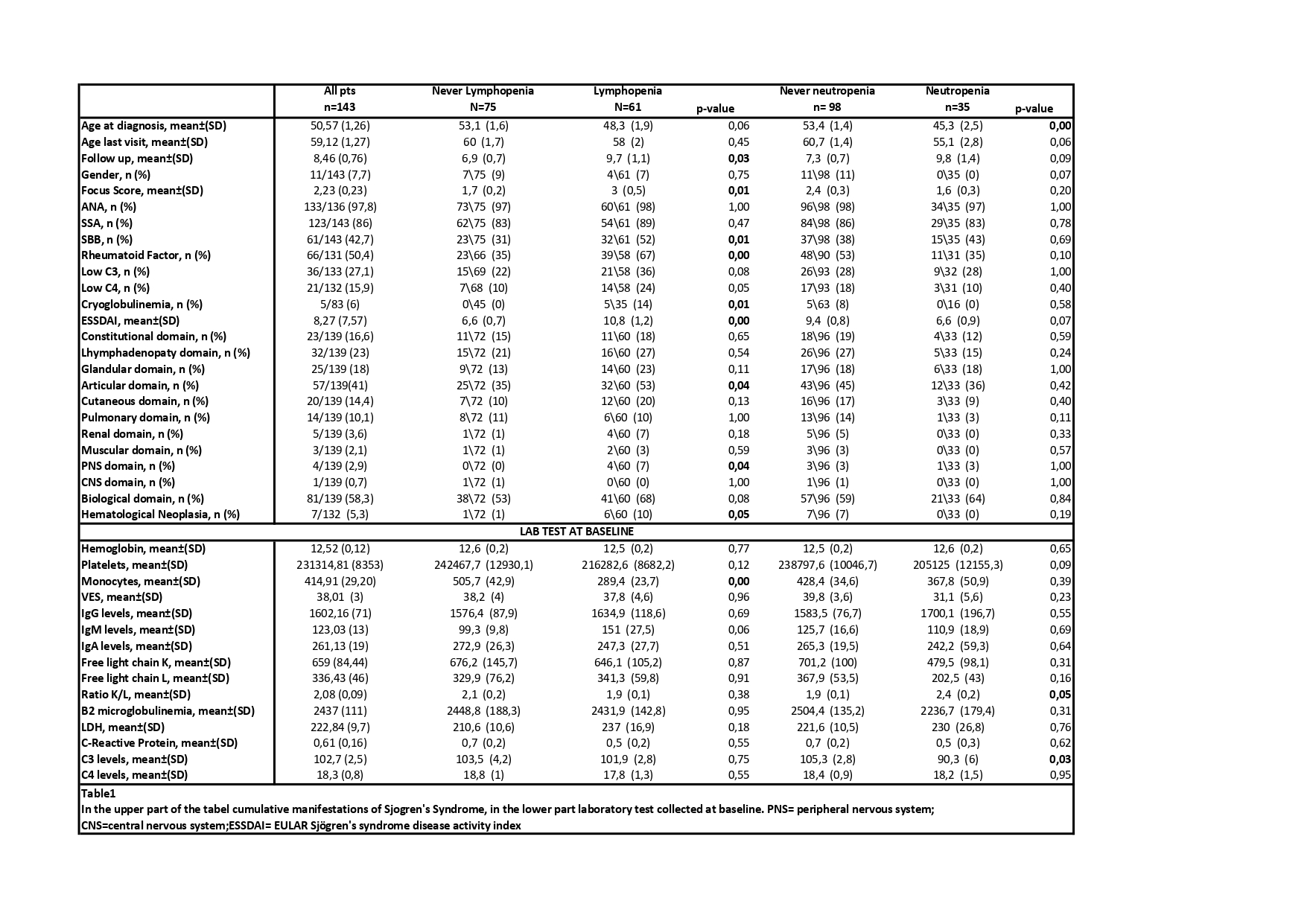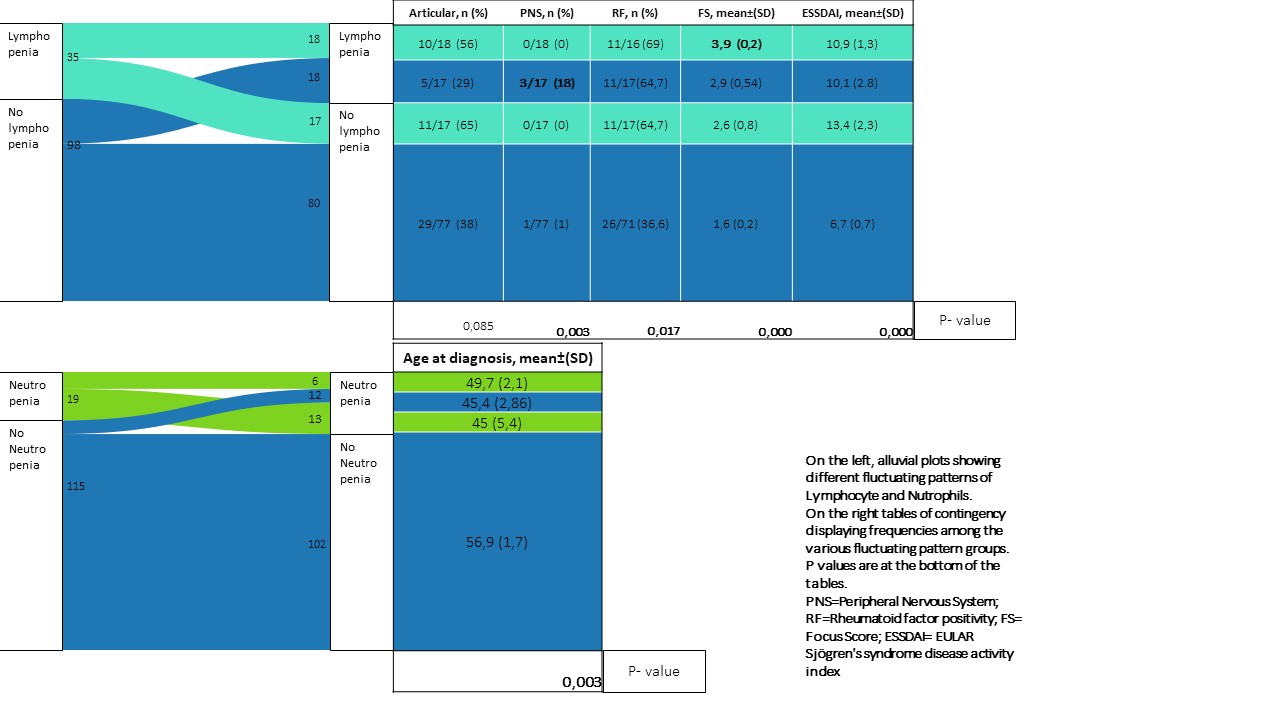Session Information
Date: Tuesday, November 14, 2023
Title: (2177–2194) Sjögren’s Syndrome – Basic & Clinical Science Poster II
Session Type: Poster Session C
Session Time: 9:00AM-11:00AM
Background/Purpose: Sjogren’s disease (SjD) is characterized by a moderate prevalence of cytopenia, mainly neutropenia and lymphocytopenia with a typical fluctuating pattern. The associations between clinical manifestations and cumulative hematological involvement are well described. However, the prognostic value of white blood cell counts over time is still not fully understood. Our aim was to determine the prevalence of neutropenia and lymphopenia in patients with SjD, their variations over time and the corresponding clinical associations.
Methods: This is a multicentric study conducted at the University of Pisa and Lisbon Academic Medical Centre. Data of SjD patients (ACR/EULAR 2016 criteria) with hematological involvement were retrospectively collected. Patients were divided into groups accordingly to the presence of lymphopenia and neutropenia throughout their disease course: no cytopenia, cytopenia only present at baseline, cytopenia only present at the last follow up and persistent cytopenia. Demographic and cumulative clinical features, such as serological markers, organ involvement (assessed by ESSDAI), and salivary gland biopsy findings were analyzed. Univariate and multivariate logistic regression analysis was performed.
Results: We included 143 patients, 92.3 % were female and the mean follow up was 8,46±0,76 (Table 1). During the disease course, lymphopenia and neutropenia were present in 61/136 pts (44.9%) and32/133 (26.31%), respectively. Lymphopenia was associated with a longer disease duration, serological features (SSB positivity, RF positivity and cryoglobulinemia), higher focus score, higher disease activity as assessed by ESSDAI, more common involvement of the peripheral nervous system, articular and muscular systems, and a higher risk of lymphoma development. Neutropenia was associated with a younger age at diagnosis and lower C3 levels at baseline. A trend was observed for sex (0/35 vs 11/98, p=0.07), as male patients did not have neutropenia (Table 2). In multivariate analysis, lymphopenia was independently associated with focus score (OR 1,312 C.I. 1.02-1.68, p-value 0,034), whereas neutropenia remained associated with both age and C3 (OR 0.95, C.I 0.92-0.99, p-value 0,014; OR 0.95, C.I. 0,92-0.99, respectively). Patients presented different features depending on variations of blood cell levels: persistent lymphopenia tended to be associated with higher focus score, whereas the onset of lymphopenia during the disease course was associated with peripheral nervous involvement (p=0.003) Variations in neutropenia were not associated with any specific SjD clinical manifestations (Fig.1).
Conclusion: Our study highlights the associations of lymphopenia with key histological, serological and clinical features of SjD. Interestingly, lymphocytopenia may show different pattern of variations, ultimately associated with higher disease activity and tissue infiltration. This is consistent with the hypothesis of glandular tissue homing of circulating lymphocytes in the pathogenesis of SjD and should be further explored.
To cite this abstract in AMA style:
Fulvio G, Bandeira M, Silva A, La Rocca G, Fonzetti S, Ferro F, Mosca M, Romão V, Baldini C, Silvério-António M, Khmelinskii N. Lymphopenia Fluctuation Patterns Determine the Trajectory of the Disease in Sjogren’s Patients with Hematological Involvement [abstract]. Arthritis Rheumatol. 2023; 75 (suppl 9). https://acrabstracts.org/abstract/lymphopenia-fluctuation-patterns-determine-the-trajectory-of-the-disease-in-sjogrens-patients-with-hematological-involvement/. Accessed .« Back to ACR Convergence 2023
ACR Meeting Abstracts - https://acrabstracts.org/abstract/lymphopenia-fluctuation-patterns-determine-the-trajectory-of-the-disease-in-sjogrens-patients-with-hematological-involvement/



